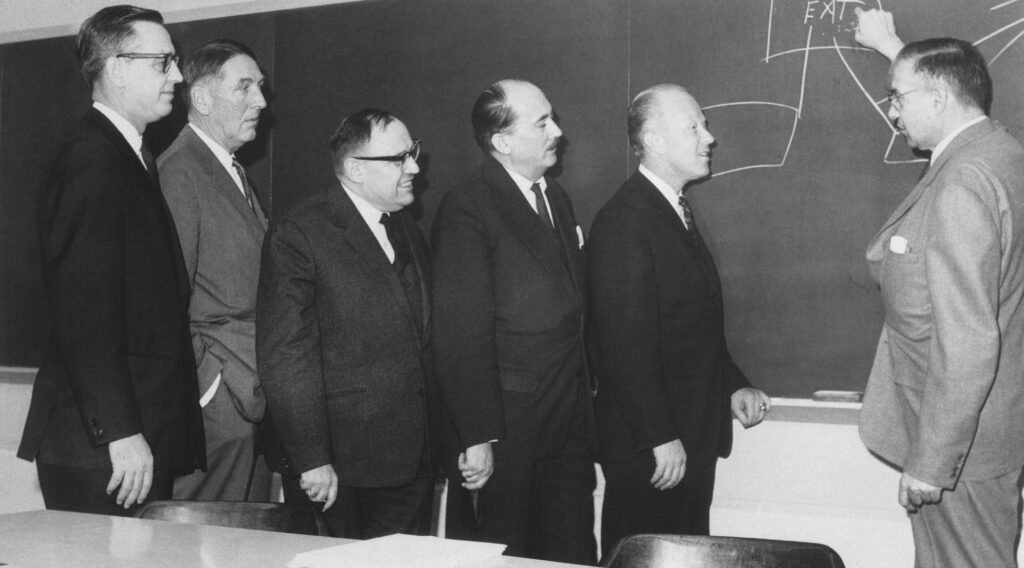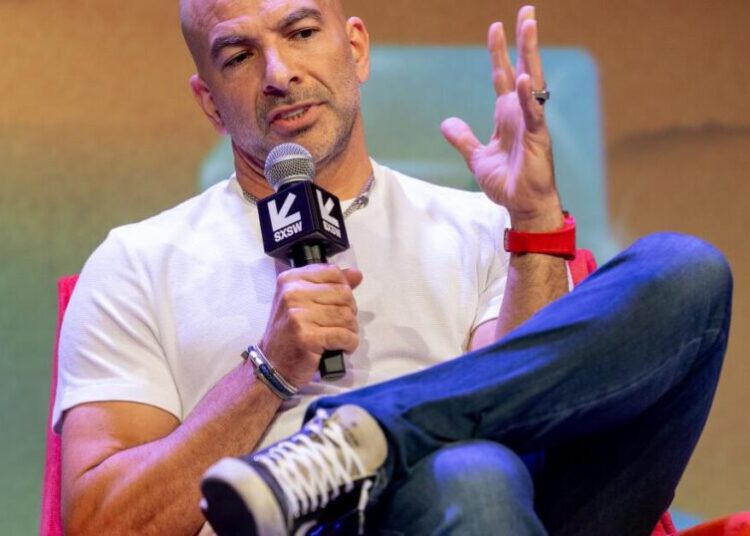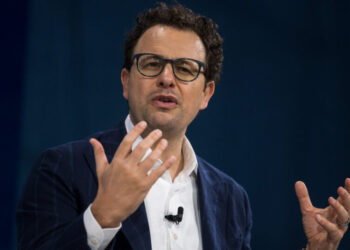Tom Tugendhat is a Conservative member of Parliament in Britain and a distinguished fellow at the Hudson Institute.
Vienna’s Hofburg palace has staged empires, romance and shame. Its halls have echoed with waltzes as ambassadors danced with countesses to secure treaties and pit national aspirations against imperial ambition before becoming witness to one of history’s darkest turns: From its balcony, Adolf Hitler proclaimed the Anschluss, the annexation of Austria.
Today, the complex is dedicated to peace, with the Organization for Security and Co-operation in Europe now based in the palace. But the group set up to help the free world talk to the communist bloc failed to prevent the invasion of Ukraine.
Politics is failing to bring peace where business may have a chance. The overlap between the two was the theme of the annual Global Peter Drucker Forum held at the Hofburg this month, pointing out that business isn’t neutral — it shapes the world and responds to needs by coordinating demands and supply. Conviction — serving the needs of society, not preaching the latest fad — has been a key driver of growth for centuries.
Drucker, the father of modern management theory, recognized this in his 1946 classic, “Concept of the Corporation.” Using General Motors as an example, he showed a company to be not merely a machine for profit but a social institution — an organism, not just an organization. He showed that finance and marketing interacted at GM, and divisions such as Chevrolet and Cadillac needed rivalry and friction, along with interdependence and adaptability, but most of all they needed to be built on purpose, not just an imagined efficiency.
A student of law and political philosophy in interwar Europe, Drucker was deeply influenced by the Austrian intellectuals of his youth, including the Nobel Prize-winning economist Friedrich Hayek. Both men shared a skepticism toward centralized authority and a belief in the vitality of institutions that harness individual initiative within ethical and legal bounds. Where Hayek saw markets as the way society could bring every citizen’s individual perspective into a common understanding, Drucker saw management as the moral practice that made such coordination humane and productive.
In both cases, this is business as politics. Not in today’s slogans — such as the environmental, social and governance (ESG) mantra used to virtue-signal while shunning essential industries that need carbon energy, or make arms that help nations defend their citizens — but in the older, deeper sense of politics as the way we govern ourselves, shape the norms of our society and share responsibility and reward. In that, Drucker and Hayek were drawing from an earlier tradition: the Quaker philosophy.
Families such as the Barclays, Lloyds and Cadburys understood commerce as venture grounded in a religious sense of stewardship and social duty: honesty in trade, decency in labor, and the conviction that profit without purpose was empty.
Quaker banks became the foundation of British finance because they were willing to look at each loan on its merit, viewing trust as the expression of moral consistency that all were created equal. They were not swayed by rank or title but supported those working to advance society.
Their politics was implicit but transformative: liberal and reforming, and funding the massive increase in business activity in 19th-century Britain. They demonstrated that profit-driven capital could serve conscience as well as commerce.
The financiers were not alone. Thomas Cook created what became Britain’s largest travel company in 1841 based on the simple idea that men should not spend their money on alcohol but save what they would have spent on beer to pay for a family trip to the seaside. Cook’s new savings plan linked mobility to moral reform, bringing improving air to those tempted by the gin-fueled pubs of the cities’ dark, satanic mills.
Within a few decades of that first day-trip train to the coast, there were journeys down the Nile or to India. Cook’s driving commitment to temperance, tempered by his religious ethos and business mind, created an entire industry: tourism. Prohibition, the political alternative, created crime.
In Austria, bankers took up many of these principles. The precursor to the Erste Group, now one of the largest banks in Eastern Europe, was founded by, among others, a priest in 1819, and set out a charter that declared: “No age, no gender, no social standing, no nation shall be excluded from the benefits that the savings bank offers every depositor.”
These financiers and industrialists understood that business is built on both social purpose and responsible governance. Today, those values are lived in some and contrast with the emptiness of others.
What is environmental about moving jobs from clean-energy Europe to coal-burning China? Or social about refusing to invest in weapons to protect Ukrainians from rape and murder? Or how does a partnership with companies using forced labor in China’s Xinjiang region accord with any respectable principles of governance? Business as pantomime has left many cold, particularly when others show you can do well by doing good.
Employing families, defending allies and creating opportunity are the politics of business. As states and societies, through the quiet cooperation of individuals organized together in business, we find more fluid answers to the challenges we face every day. Without the posturing of politics, the politics of business, rightly understood, is the politics of peace.
The post Business can teach us about governance, not just profits appeared first on Washington Post.




